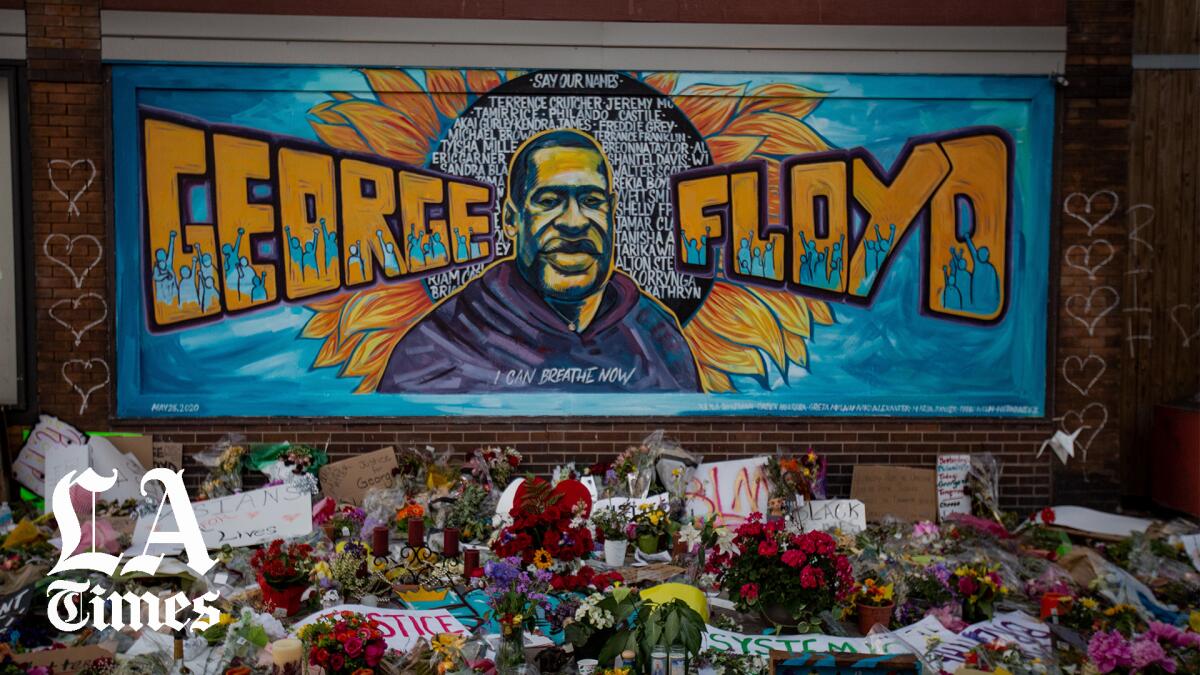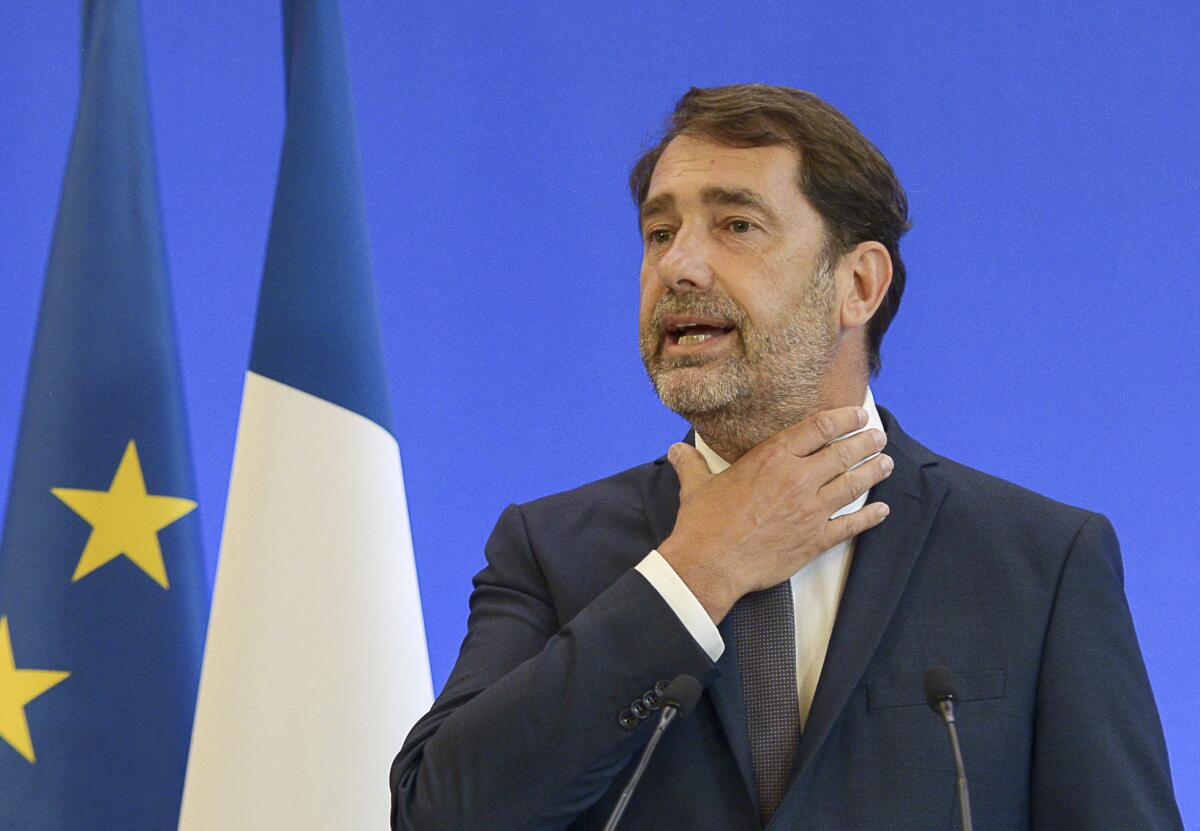France to abandon police chokeholds after George Floyd death

- Share via
PARIS — French police will no longer be allowed to use chokeholds during arrests, the interior minister said Monday, banning the immobilization technique after it came under renewed criticism following George Floyd’s death in the United States.
With the French government under increasing pressure to address accusations of brutality and racism within the police force, Interior Minister Christophe Castaner announced Monday that “the method of seizing the neck via strangling will be abandoned and will no longer be taught in police schools.”
He said that during an arrest, “it will be now forbidden to push on the back of the neck or the neck.”

“No arrest should put lives at risk,” he said.
Yet Castaner stopped short of banning another technique — pressing on a prone suspect’s chest, which also has been blamed for leading to asphyxiation and possible death.
Floyd died May 25 after a white Minneapolis police officer pressed his knee into his neck for several minutes even after he stopped responding. Three days later, another black man writhed on the street in Paris as a white police officer pressed a knee to his neck during an arrest.
French lawmakers have called for such practices to be banned, and they have raised criticism in other countries too.
France has seen several protests over the last week sparked by Floyd’s death, which is stirring up anger around the world.
President Emmanuel Macron has stayed unusually silent so far both about Floyd’s death and what’s happening in France. Macron’s office said he spoke to the prime minister and other top officials over the weekend, and asked Castaner to “accelerate” plans to improve police ethics that were initially promised in January.
Castaner acknowledged that there are racist police officers and promised “zero tolerance” for racism within the force going forward.
He ordered police officers to be systematically suspended when they are suspected of racist acts and comments, in addition to criminal proceedings.
“Racism has no place in our society and even less” so among police, he said.
In addition, Castaner said that more police officers will be equipped with body cameras to help ensure that identity checks don’t lead to discrimination against minority groups, as human rights groups accuse French police of ethnic profiling.
Last week, the Paris prosecutor’s office opened a preliminary investigation into racist insults and instigation of racial hatred based on comments allegedly published by police in a private Facebook group.
The Streetpress website shared a string of offensive messages that it said were published within the group, though it acknowledged that it is unclear whether the authors were police officers or impostors. Some of the reported comments mocked young men of color who have died fleeing police.
Separately, six police officers in the Normandy city of Rouen are under internal investigation over racist comments in a private WhatsApp group. Both incidents have prompted public concern about extreme views among French police.
French activists say tensions in low-income neighborhoods with large minority populations grew worse amid coronavirus confinement measures, because they further empowered the police.
At least 23,000 people protested in cities around France on Saturday against racial injustice and police brutality, even defying a police ban on such protests in Paris due to fears about spreading the coronavirus.
Thousands of activists marched Monday in the western city of Nantes, and more demonstrations are planned in France on Tuesday, when Floyd is to be buried.
The agency that investigates allegations of police misconduct, the Inspectorate General of the National Police, known by its French acronym IGPN, said that 19 people have died and 117 others have been injured during police operations in France last year, according to a report released Monday.
The IGPN has investigated 1,460 complaints against officers last year, about half of them for alleged violence against civilians. Many incidents were related to often violent anti-government “yellow vest” protests, the report says.
More to Read
Sign up for Essential California
The most important California stories and recommendations in your inbox every morning.
You may occasionally receive promotional content from the Los Angeles Times.










